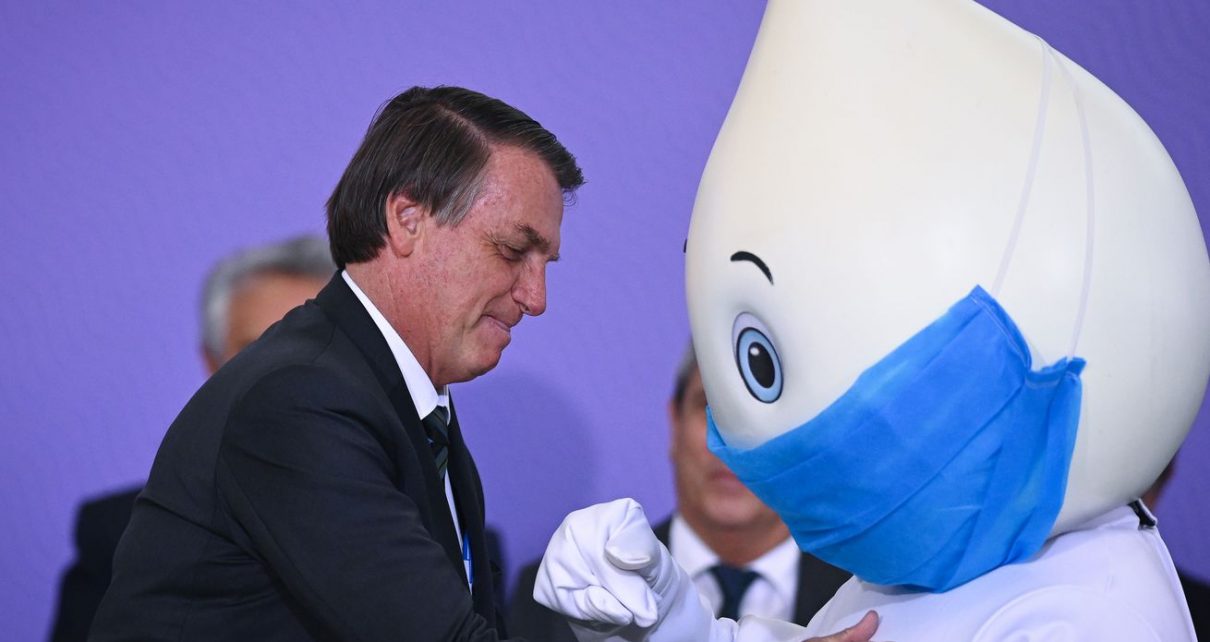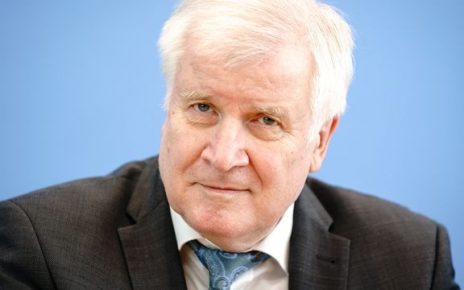
Brazil put its trust in vaccination programs, even as President Bolsonaro tried to undermine confidence in it.
Franco, a 28-year-old Brazilian, agonized over getting the Covid-19 vaccine up until the moment the shot went into his arm. “I was skeptical in line,” he said. “Like, playing chicken, you know? Am I going to take it or not? It’s my turn.”
He went through with it; once, then twice, for his Pfizer doses. “I have decided to get vaccinated after having a sit-down with my physician, and we did our checks and balances regarding my health issues,” Franco said. (Vox is withholding his last name to protect his privacy.)
Franco also decided to get vaccinated in case of possible mandates for air travel, which have not happened. But one thing did not really factor into his decision: politics.
Franco is a supporter of President Jair Bolsonaro — he’s been with Bolsonaro “all the time.” And Bolsonaro just happens to be the most prominent vaccine skeptic in Brazil.
Bolsonaro’s skepticism might sound familiar, but in Brazil, vaccination has not become an ideological or political issue the way it has in the United States. More than 70 percent of Brazilians have been fully vaccinated, surpassing places like the US, which started its campaign much earlier.
Bolsonaro himself has said he is not vaccinated, and he has challenged Covid-19 measures from the start, even as Brazil dealt with devastating waves. Bolsonaro has dismissed the severity of the virus, touted unproven cures, and battled lockdown measures. He raised doubts about vaccines, claiming they could increase the chance of contracting AIDS (they cannot). His administration tried to undermine the approval of vaccines for kids. Broadly, Bolsonaro has tied vaccination to the idea of freedom. “If a citizen does not want to get the vaccine, it is his right and that’s it,” he said in October.
Brazil’s health regulatory agency (Anvisa), the World Health Organization, and health agencies around the world have concluded that Covid-19 vaccines are safe and effective at preventing severe disease outcomes, like hospitalization and death.
Franco said he doesn’t see Bolsonaro as attacking vaccines; he thought some of the president’s phrasing was unfortunate, or taken out of context by the media or political opponents. Instead, he thinks Bolsonaro wanted more testing — that the president was just saying, wait a second. “Everybody is looking at what Bolsonaro used to say back in the day, and realizing that he was just raising up the question: Is that a safe thing? Is it going to make everybody well enough to go back to work?”
There are plenty of others who see things differently. They point to Bolsonaro promoting vaccine misinformation and taking steps to undermine inoculation efforts, and doing so from the most powerful seat in government, in a manner that impeded Brazil’s Covid-19 response.
Yet, some places, like the city of São Paulo, say they have fully vaccinated the entire eligible population. About 90 percent of adults say they will get the shot.
Public health experts credit the trust in Brazil’s primary health care system and national immunization programs. The country has conducted mass vaccination campaigns in recent memory, including for diseases like polio, which was eradicated there in 1989.
“Despite this anti-vax approach that Bolsonaro took on, we had some benefits from our culture of vaccination,” said Wasim Aluísio Prates-Syed, of União Pró-Vacina, a pro-vaccination union.
Raphael Augusto Teixeira de Aguiar, a professor in the preventive and social medicine department at the Federal University of Minas Gerais, added that Brazil has “built up the system for so many years. It’s not easy to destroy it.”
That has muted, if not entirely eliminated, the influence of anti-vaccine sentiment and misinformation. But although Brazilians’ trust in the country’s public health and vaccination programs may have survived Covid-19 and the president’s efforts to unravel them, Brazil has not emerged unscathed. “Today we don’t have to worry. Covid will not be a problem. But I’m worried about the future,” said Natalia Pasternak Taschner, a microbiologist and president of the Instituto Questão de Ciência.
How Brazil has overcome Bolsonaro on Covid-19
On January 14, Brazil started vaccinating kids, ages 5 to 11 — almost a full month after Brazil’s federal health regulatory agency, Anvisa, approved the vaccines for that age group. Bolsonaro and his administration spent that month trying to stymie any vaccination efforts.
“Kids are something very serious,” Bolsonaro said after Anvisa’s approval. “We don’t know about possible adverse future effects. It’s unbelievable — I’m sorry — what the agency did. Unbelievable.” He also threatened to release the names of the regulators who had made the decision. (Studies show that side effects are rare.)
Bolsonaro and his administration tried to push a policy to require a doctor’s prescription for childhood vaccination, a process that would have slowed the inoculation campaign. Bolsonaro’s government launched an online survey and tried to get its supporters to flood the results. The questions were also confusingly worded and, some critics said, phrased that way to get the outcome the government desired.
That gambit failed. Of the tens of thousands who participated in the survey, the majority opposed prescriptions for childhood vaccines, and supported a much simpler process. The Ministry of Health finally put a campaign in place to vaccinate kids.
Lorena Chaves, a researcher at Emory University, said this showed Brazil’s success at fighting vaccine misinformation, with doctors and health institutions rejecting anti-vaccine efforts. Throughout the Brazil’s vaccination campaign, groups like Prates-Syed’s pro-vaccine union worked alongside others, like Rotary International’s #INFORMAÇÃOSALVAVIDAS (Information Saves Lives) campaign, to debunk misinformation.
But in general, experts said, Brazil doesn’t have a powerful anti-vaccine movement.
“Brazil is really unique when it comes to vaccination history and vaccination tradition,” Pasternak said. “And that puts us in a very privileged position, because it’s been 50 years of an excellent vaccination program. And during this 50 years, vaccine confidence was built in the Brazilian population.”
“So residents are very favorable to vaccination, and that, it makes them kind of immune to vaccine misinformation,” she added.
In the 1980s, Brazil conducted a massive campaign to eradicate polio, vaccinating more than 10 million people in one day. There is even a vaccination mascot, Zé Gotinha. Brazil has also conducted large-scale efforts for measles and for yellow fever. There is a living memory of life before, and after, vaccines. “A whole generation really grew up with this tradition of being vaccinated,” Aguiar said.
“I think most fathers and mothers and grandparents, they can remember how awful the situation was before the vaccines,” he added.
Aguiar said underlying this is Brazil’s primary health care system, with clinics throughout the country and other community-based programs. Together with vaccination, this health care infrastructure helped dramatically improve Brazil’s health outcomes for things like the child mortality rate and life expectancy. And Brazil has experience fighting epidemics of tropical diseases like dengue and Zika.
For these reasons, Brazilians largely still have faith that their health institutions are working. This is especially true for technical agencies — like Anvisa, which approves the vaccines. These agencies were somewhat insulated from the politicization of Covid-19 that permeated other parts of Bolsonaro’s government, like the Ministry of Health.
“We, all the Brazilians, truly trust it,” said Renata Vasconcelos, who, along with her husband, Henrique Vasconcelos, works with Rotary International to combat Covid-19 vaccine misinformation. Renata said that if regulators say more shots are recommended, “we are going to respect that and have it.”
Beyond trust in the system, Brazilians witnessed Covid-19’s devastation for themselves. More than 625,000 Brazilians died from Covid-19, the world’s second highest death count behind the United States. That toll was extraordinary, and the population wanted a way to avoid deadly wave after deadly wave. “Everybody has someone that we lost,” Henrique Vasconcelos said.
Maurício Terra Dias, a 59-year-old from Goiânia who voted for Bolsonaro in 2018 — but who says he will not vote for him again — put it another way in an email: “People [were] too scared to follow that insanity.”
Brazil’s health system was resilient — this time
By many metrics, Brazil bungled its Covid-19 response. A Brazilian Senate panel has alleged Bolsonaro’s response to the pandemic is more than negligence. Instead, they argue, it was deliberate mismanagement to try to achieve herd immunity with a large amount of Covid-19 cases, something lawmakers suggested could amount to crimes against humanity.
Bolsonaro’s government also mishandled the vaccination campaign. The administration was late to secure doses, and reportedly ignored overtures by Pfizer to buy doses. Other efforts were tainted by allegations of corruption, with officials trying to get kickbacks from suppliers. All of that undermined Brazil’s vaccination program, delaying the start of the rollout until mid-January 2021, and leaving the country short on supply.
But the campaign picked up in the middle of last year, hitting rates just about on par with many European countries. This is largely because the system proved, despite chaotic leadership from the federal government, to be resilient. Doctors, social movements, state governors, and local officials mobilized, reacting, improvising, and adjusting.
“A lot of people think Brazil’s Covid-19 response was a disaster,” said João Nunes, a senior lecturer in international relations at York University. “But it wasn’t a disaster. It would have been a lot worse if it weren’t for this resilience, for this capacity of the public health system.”
Bolsonaro has always maintained his unshakable base of supporters, but, increasingly, that’s all who’s left. His government is more unpopular than ever, and Bolsonaro is trailing far behind his likely opponent in the 2022 election. The country is facing an economic crisis, and as Aguiar said, people who are struggling to survive can’t afford to be sick. Many see Bolsonaro’s anti-vaccine crusade as a way to distract from his own failures on Covid-19, and the economy, and turn it into a fight over ideology, in an attempt to galvanize his supporters. “Now we are almost all tired of his idiocy,” Terra Dias said.
All of this helped create a buffer against Bolsonaro, but experts said it is fragile and not guaranteed to be permanent. “When it comes to vaccines, we have this 50-year-old tradition of trust,” Pasternak added. “And trust is not the same as understanding. It’s not the same as scientific literacy.”
The health system’s resiliency could still falter. Indeed, the rollout of childhood vaccinations for kids under 11 has been pretty slow so far, and some officials have blamed Bolsonaro for this, including his comments that he would not vaccinate his 11-year-old daughter.
“It’s the first time in Brazil in history that we have an outright anti-vax spreading vaccine misinformation,” Pasternak said. “So this beautiful vaccine confidence that we have today — that makes us immune even to Bolsonaro’s claims that vaccines are going to give you AIDS, turn you into an alligator, or kill children — I don’t know where we’ll be in like five years’ time, if these attacks continue.”
Franco is supportive of vaccines, but thought the Covid-19 doses were misleadingly sold as the silver-bullet cure to Covid-19. He believes that even more strongly after his vaccinated father spent eight days in the ICU with Covid-19. He is still evaluating whether he’ll get a booster shot; he’ll talk to his doctor again, get a checkup. He’s unsure if he’s better off vaccinated — maybe, maybe not — but he does not regret it, either.
“I have to stand with my decision,” he said. “I didn’t get any bad side effects or anything like that. But, I mean, what’s done is done.”




